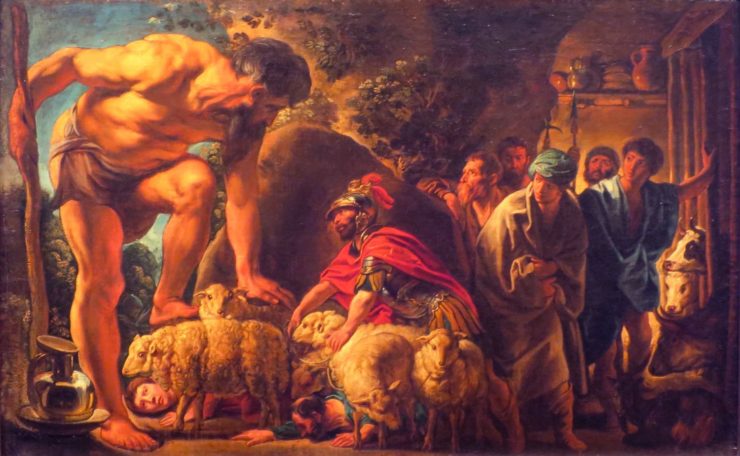When I was growing up, my world was neatly divided into monotheism and pantheism. On the monotheism side there was the god of Abraham and on the pantheism side there were the Greeks—Zeus, Hera, Athena, etc. You’re probably noticing some signs of a very limited world view. I had been told that the Romans had gods just like the Greeks only with new names like Jupiter and Juno. I knew there were other religions, and I was at least passingly familiar with the Norse gods. My fifth-grade social studies textbook made sure I knew a little about the Sumer and Ur and the Egyptians, but their gods? Their gods just didn’t show up very often back then and there were so many other gods to whom I’d never even been introduced.
When I wrote my first novel The Thief, I knew I wanted to set it in the landscape of Ancient Greece with a Byzantine level of technology and pantheistic religion, but I didn’t want to co-opt the Olympian gods or the Titans for my story. In so many textbooks over the years, the Greek pantheon has been reduced to one dimensional versions of their former selves. I wanted three dimensional characters and I was afraid there would be too much dissonance between my gods and their schoolbook definitions.
Buy the Book
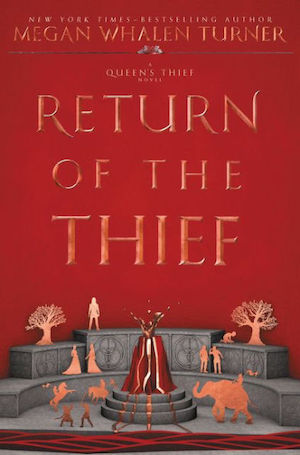

The Return of the Thief
By then, I’d read and loved Diana Wynne Jones’s Dalemark books in which she created, particularly in Drowned Ammet, gods and goddesses so real that you thought they must be based on some religion you just hadn’t yet learned about. I wanted to make up gods that felt that real. My gods are a mix of very human traits and the unknowable. They meddle in human affairs and the mortals must make the best of it. I’m going to take it as a win that a disturbing number of reviewers refer to them as Greek gods and don’t seem to realize that they aren’t.
And now, I think I’m living in a golden age, with so many fabulous writers bringing us stories of gods and goddesses drawn from cultures all over the world or invented from whole cloth. Here are some of my favorites. Some of the gods are very down to earth while others are far from it. They are sometimes kind and sometimes cruel. Some seem like mortals writ large and some are ineffable. The one thing they all have in common? Just like the god Eugenides in Return of the Thief—you want to stay on their good side—if you can.
The Odyssey
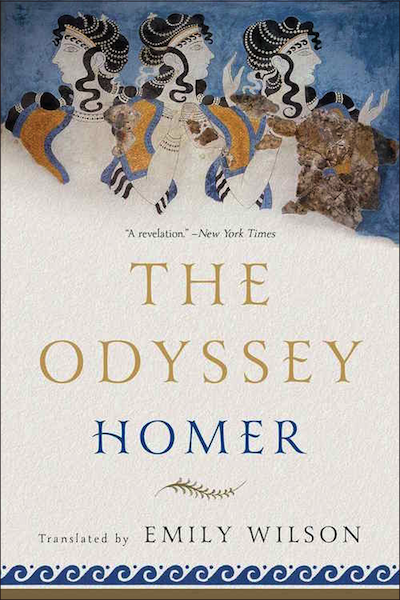
Apollo took from them the day of their return.
The Iliad is an excellent example of just how much misery that gods can inflict on humanity, but that story begins with the wrath of Achilles—when the events that led to the war on Troy are long over. With The Odyssey, we get a front row seat as Odysseus slays the Cyclops and makes a lifelong enemy of his father, Poseidon. We see his men eat the cattle of Apollo and then we get a ten year long lesson in why you shouldn’t offend the gods.
Eight Days of Luke by Diana Wynne Jones
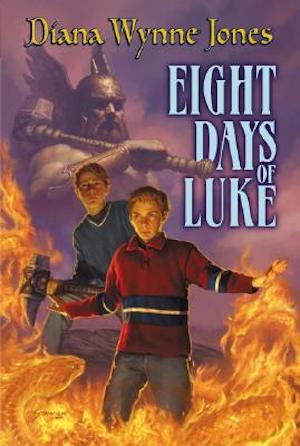
I was in my twenties when I read this book. I’d only ever read one book by Jones, Dogsbody. I had no idea she had written anything else. Her books weren’t on a shelf in any library I’d visited and this was long before you could look up an author on the internet. The best we had was an out of date collection of Books in Print. I hope it seems bizarre to at least some of my readers, that this may have been the first time I read a story with gods and goddesses that weren’t either Greek or Celtic. It was Athena and Artemis and Zeus or it was Arawn and Cernunnos—those had been my only options. Sure, there was The Lord of the Rings, but Tolkien stripped much of the identifying features out of his source material. Jones was writing about Thor and Odin and Loki and I was delighted.
David, a perfectly ordinary British school boy is home from school for a miserable holiday with his miserable family, distant relatives who are his guardians and who make it clear his presence is deeply unwelcome. In the back garden, venting his misery, David shouts out nonsense syllables that just happen to be the words that will release Loki from an underground prison where he’s been holding up a bowl to catch the poison dripping on him from a venomous snake. Loki appears a boy, just David’s age, charming and little odd and up for some fun, like, setting a whole department stores on fire, for example.
When the other gods show up looking for escaped Loki, David has to decide whose side he’s on. It’s a shame you can’t help out one god without pissing off a bunch of others.
Gods of Jade and Shadow by Silvia Moreno-Garcia
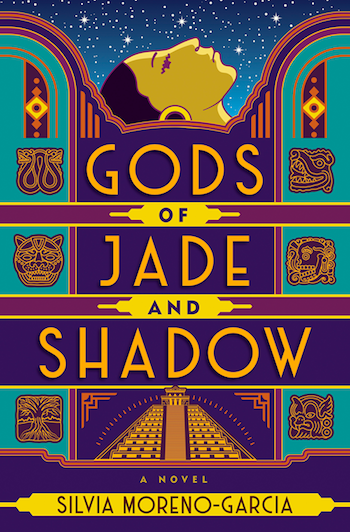
Mortals believe gods to be omnipotent and ever-knowing. The truth is more slippery…
The Lord of Xibalba has had his head cut off by his twin brother and his bones have spent 50 years in a trunk before Casiopea discovers them. When a single bone shard pierces her skin, the Mayan god of death is reconstituted. He draws life from her, but with that nourishment comes Casiopea’s humanity, changing the nature of the god even as they work together to reinstate him on the throne of Xibalba. While Casiopea is tied to Hun-Kamé, her unpleasant cousin Martin, works for the new Lord of Xibalba, Hun-Kamé’s brother. Mortal, gods, witches, demons–all have to take sides and hope their side wins.
Trail of Lightning by Rebecca Roanhorse
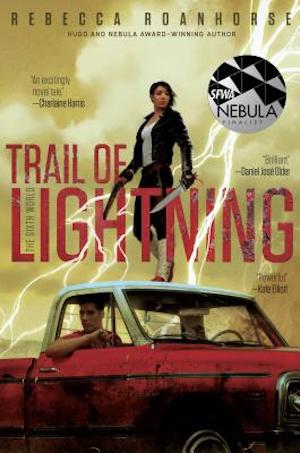
Trail of Lightning is set in a post-apocalyptic world where the Dinetah has become an independent nation with a wall around to keep the that have flooded the outside world. Maggie Hoskie is a monster slayer. She didn’t offend Neizghani, her immortal teacher so much she disappointed him. She was his apprentice until he left her behind without warning or explanation. With no other choice, she carries on, on her own.
I love everything about Roanhorse’s work, but particularly the fact that it is set in the future. In this story, perhaps the gods should have been more careful they didn’t offend Maggie Hoskie.
The Hundred Thousand Kingdoms by N.K. Jemisin
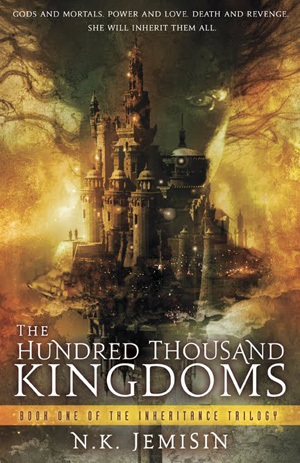
Jemisin’s Broken Earth trilogy won her well-deserved Hugos, but it’s The Inheritance Trilogy that I love. She fuses gods and science together, and in The Hundred Thousand Kingdoms, she makes creating gods look easy.
Yeine Darr is summoned to the capital city, Sky, by her grandfather to be a pawn in a terrifying competition to be heir to his throne. Her only possible allies are the gods bound to serve her family. On the one hand, they are very powerful, on the other, there’s nothing to make a god dangerously angry like being trapped and enslaved in a mortal body.
Strange the Dreamer by Laini Taylor
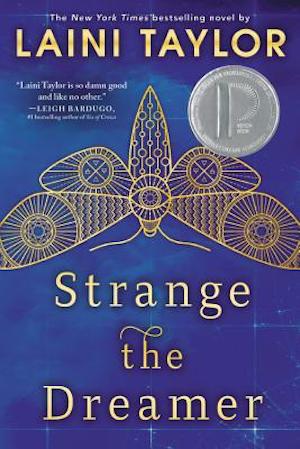
What happens when the gods are not merely capricious they are all out monsters?
Lazlo Strange is an orphan who grows up dreaming of a city that so offended its gods that its name was wiped from everyone’s memory and replaced with the word Weep. When the hero of Weep, the man who slayed its gods, comes to the librarians of Zosma, seeking help for his city, Lazlo seizes the chance to see Weep for himself.
Laini’s writing so vivid, so confident that there is no limit to the poetry she brings to her prose. Her gods are truly horrifying and just as truly captivating.
The Poppy War by R. F. Kuang
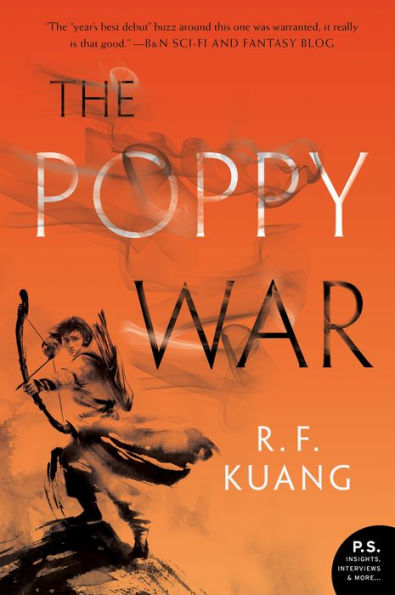
You have the four cardinal gods—the Dragon, the Tiger, the Tortoise, and the Phoenix. Then you have local household gods, village guardian gods, animal gods, gods of rivers, gods of mountains…
Rin is an orphan, “fortunate” enough to have a marriage arranged with a local inspector who will accept her as a wife in exchange for looking other way while her adoptive parents run their opium business. Rejecting that future, Rin sits for the Keju, the Empire wide test that selects candidates for Sinegard, an elite military school.
In the scene quoted above she is arguing for the common viewpoint of the gods in her experience—they are cultural references, metaphors, personifications of emotions or significant events. As in the world of The Thief, people give lip service to the gods. They never expect them to appear.
The Library at Mount Char by Scott Hawkins
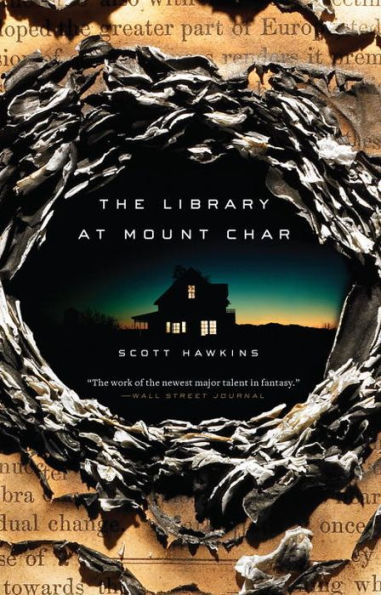
Who is Adam Black, also known as Ablahka? His ‘librarians” used to be children. What are they now? Caroline doesn’t know. After being locked away in an infinite library, trained by an adoptive father who might be God, and dying a few times in the process, she’s not really “all there” anymore. When her Father, Adam Black, Ablahka, disappears, perhaps murdered by any one of the other terrifyingly powerful gods –the Duke, Barry O’Shea or the mysterious Q-33 North, no one on Earth knows what happens next.
New York Times–bestselling author Megan Whalen Turner is the award-winning author of six novels set in the world of the Queen’s Thief. These epic novels of intrigue and adventure can be read in any order, but were published as follows: The Thief, The Queen of Attolia, The King of Attolia, A Conspiracy of Kings, Thick as Thieves, and Return of the Thief. Megan Whalen Turner has been awarded a Newbery Honor and a Horn Book–Boston Globe Honor, and won the Los Angeles Times Book Award for Young Adult Literature. She has won the Mythopoeic Fantasy Award for Children’s Literature and was a finalist for the Andre Norton Award. She worked as a bookseller for seven years before she started writing. Her first book was a collection of short stories called Instead of Three Wishes.










